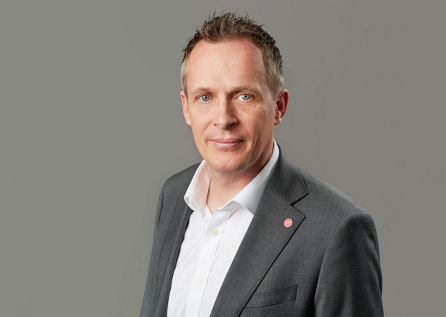Batteries for Emerging Economies
The Faraday Institution is leading the Ayrton Challenge on Energy Storage, which is using British expertise and partnerships to advance energy storage technology for emerging economies.
In April 2023, the Faraday Institution was selected to lead the Ayrton Challenge on Energy Storage (ACES) funded by the UK Government’s £1 billion Ayrton Fund.
Currently, 675 million people globally lack reliable electricity access. Energy storage is crucial for enhancing supply reliability, reducing emissions, and meeting climate targets.
As part of ACES, the Faraday Institution heads a research programme to March 2027. It aims to expand energy access, reduce emissions, and support energy transitions in emerging economies by developing cost-effective battery energy storage systems. These systems maximise power availability from renewable sources, replacing polluting fossil fuel-based backup generation and reducing emissions and pollution.
The £5 million R&D programme is part of a broader co-ordinated ACES package of at least £25 million across a range of partners for skills development, technology accelerators, and market building activities. These partners include the Carbon Trust, Shell Foundation, Acumen, the World Bank’s Energy Sector Management Assistance Programme (ESMAP), UCL and Innovate UK’s Energy Catalyst, as well as a range of academic and industry leaders. Innovations will reduce the cost and improve the performance of energy storage systems for static off- and weak-grid, and e-mobility solutions in target countries.
The Ayrton Fund aims to accelerate the clean energy transition in developing countries, by creating innovative clean energy technologies and business models, supporting the Sustainable Development Goals, and especially progress on Affordable and Clean Energy (SDG7) and Climate Action (SDG13).
ACES builds on the UK’s existing partnership with the wider global movement for energy access, through the extensive networks of the FCDO’s Transforming Energy Access (TEA) platform, which supports early-stage testing and scale up of innovative technologies and business models that will accelerate access to affordable, clean energy-based services to poor households and enterprises, especially in Africa.
Effecting Global Change
Professor Pam Thomas, CEO, Faraday Institution: “The Faraday Institution is well positioned to effect global change. Decarbonising electricity provision in communities in the global south with low or no connectivity is a multi-faceted challenge. Working collaboratively with multiple partners, ACES will move the dial, bringing reliable access to clean energy sources to communities, changing lives and livelihoods.”
Research Programmes
ACES builds on activities already delivered by the Faraday Institution and its research partners since 2019 and more recently as part of the Ayrton Fund.
Research Projects – Ongoing
Research Projects – Completed
Other Activities the Faraday Institution is Leading as Part of Ayrton Fund on Energy Storage
Supporting the development of battery energy storage systems (BESS) solutions through strategic research partnerships
Working with, for example, the World Bank, the Global Battery Alliance, and organisations in the target regions, research is being commissioned to provide insights into the environmental, political, financial and social contexts for any BESS technological interventions. This will support their applicability and inform activities and partnerships across the Ayrton Fund portfolio and beyond.
As one example of the output of this workstream, in the spring of 2023, the Faraday Institution disseminated an evidence-based study on the market, policy, and regulatory landscape for battery energy storage technologies within emerging economies to ACES partners.
 The report covers a technology review of the potential for lithium-ion and sodium-ion batteries in both stationary and portable energy storage applications and e-mobility use-cases, covering potential market opportunities such as battery rental and swapping, and use of second life batteries. It considers the safety and durability of technologies in the context of environmental and climate-related challenges in target regions as well as for potential use in provision of energy in emergency response situations.
The report covers a technology review of the potential for lithium-ion and sodium-ion batteries in both stationary and portable energy storage applications and e-mobility use-cases, covering potential market opportunities such as battery rental and swapping, and use of second life batteries. It considers the safety and durability of technologies in the context of environmental and climate-related challenges in target regions as well as for potential use in provision of energy in emergency response situations.
Facilitate the deployment of BESS solutions
ZE-Gen, convened by the Carbon Trust and Innovate UK and including partners like the Shell Foundation and Cross Boundary’s Innovation Lab, may provide an important pathway to impact through deploying in target communities at least two proof-of-concept demonstrators of promising technologies identified in the research programme.
Capability building
To enable knowledge transfer, enhance education and skills, and support successful technology deployment, capability building initiatives will be delivered across target regions. This is expected to include the creation of an online community of African battery professionals, and Masters to PhD enrichment activities, in collaboration with the TEA Learning Partnership.
As one example of an initiative under the capability building programme the Faraday Institution sponsored two researchers to attend the UK Energy Research Centre’s dynamic, multi-disciplinary 2023 summer school “Global just Transition: Equity in Net Zero”. This video about the event features comments from Best Khoza of University of Cape Town.
Provide BESS domain expertise and lead the ACES Strategic Leadership Group (SLG)
Supported by the Carbon Trust, the Faraday Institution is convening partners engaged across the Ayrton Fund portfolio whose work is aligned with and directly contributing towards researching, developing and using energy storage technology solutions. The forum aims to facilitate coordination and collaboration, with initiatives to include the joint commissioning of studies and research, and organisation of joint dissemination events. The SLG currently includes members from: University of Oxford, World Bank, Shell Foundation, Acumen, InnovateUK, Carbon Trust, and the Department of Energy Security and Net Zero.
Get involved
If you have questions about the Ayrton Challenge on Energy Storage or would like to get involved, please contact Andrew Deadman, International R&D Partnerships Manager.


